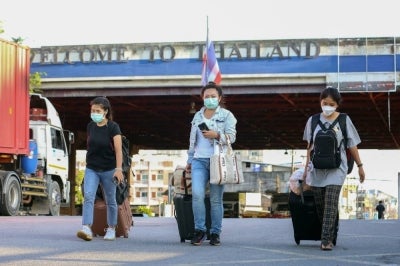'Malaysia excels in informal mental health support but lags in formal support' – Expert
There is only 1.1 psychiatrists per 100,000 Malaysians as reported in 2017.

SHAH ALAM - While Malaysia thrives in informal mental health support through family, friends, education and cultural values, its formal support infrastructure is severely lacking.
Malaysian Psycho Spiritual Well-being Association Deputy Chairman, Psychologist and Suicidologist Dr Adnan Omar said that Malaysia excels in informal mental health support through family, friends, education and life values but lags in formal support with only 1.1 psychiatrists per 100,000 Malaysians as reported in 2017.
“Compared to the World Health Organisation's (WHO) expected 3.55 psychiatrists, our number is very low.
“In contrast, Germany had 27, France 23, the UK 18, and Switzerland 52 psychiatrists per 100,000,” he said.
Dr Adnan also emphasised that in Malaysia, the Health Ministry (MOH) is the key player in formal mental health support.
“Post-pandemic, MOH has intensified efforts by establishing Pusat Kesihatan Mental Komuniti (Mentari) and enhancing mental health services across its locations.
“Non-governmental organisations like Befrienders, Talian Rahmah, Miasa, Malaysian Mental Health Association and Pertubuhan Kesejahteraan Psikospiritual Malaysia's Talian ReachU also contribute through services and hotlines.
“The government should enhance mental health support by expanding facilities, practitioners, and programmes.
“Non-governmental organisations providing mental health support should broaden their services to reach more Malaysians in need,” he said.
Adnan also suggested that MOH can utilise Mental Health Quotient (MHQ) across diverse population segments to gain insights into mental health.
“Utilising MHQ results can aid in understanding mental health status and guide necessary improvements.
“Strengthening informal mental health support systematically is crucial and integrating relevant factors into school syllabi can provide early education for children on these aspects,” he added.
Meanwhile, Universiti Pendidikan Sultan Idris (UPSI) Psychology Counselling Expert Associate Professor Dr Fauziah Mohd Sa'ad said that while Malaysia’s mental health system potentially differs from other countries, it will still likely share commonalities.
“Malaysia's mental health system may differ from other countries but likely shares similarities in providing access to services, public awareness campaigns, and stigma reduction initiatives.
“However, variations may exist in resource availability and mental health integration into primary healthcare,” she explained.
Dr Fauziah also stated that evaluating Malaysia's mental health initiatives and policies during and after the pandemic entails examining factors like access to services, support for vulnerable groups, telemedicine adoption for mental health, and addressing pandemic-related psychological impacts.
She also said to enhance Malaysia's mental health landscape, focus should be placed on boosting mental health literacy, broadening access to services, integrating mental health into primary healthcare, investing in research for tailored interventions and tackling social determinants like poverty and inequality.
Recently, Malaysia has been listed as number five in the ten happiest countries in the world, according to the Global Mind Project’s fourth annual “Mental State of the World" report.
The ten happiest countries were the Dominican Republic, followed by Sri Lanka, Tanzania, Panama, Malaysia, Nigeria, Venezuela, El Salvador, Costa Rica, and Uruguay.
The report by non-profit neuroscience research organisation Sapien Labs, had polled 419,175 individuals from 71 countries in an anonymous online survey. Also listed in the report were the top ten unhappiest countries with Uzbekistan listed first, followed by the United Kingdom, South Africa, Brazil, Tajikistan, Australia, Egypt, Ireland, Iraq and Yemen.
The MHQ assesses 47 aspects of mental health, in six categories - mood and outlook, social self, drive and motivation, mind-body connection, cognition, adaptability and resilience.
Malaysia scored 85 per cent, an increase of 2.9 per cent from the previous year. Sapiens Lab also said those under 35 years old saw the worst declines in mental well-being, adding that it was exacerbated due to the Covid-19 pandemic while those over 65 stayed steady.
Two key findings published in Rapid Reports in 2023 show that younger age of first smartphone ownership and ultra-processed food consumption are two major contributors to our mental health challenges
Download Sinar Daily application.Click Here!















